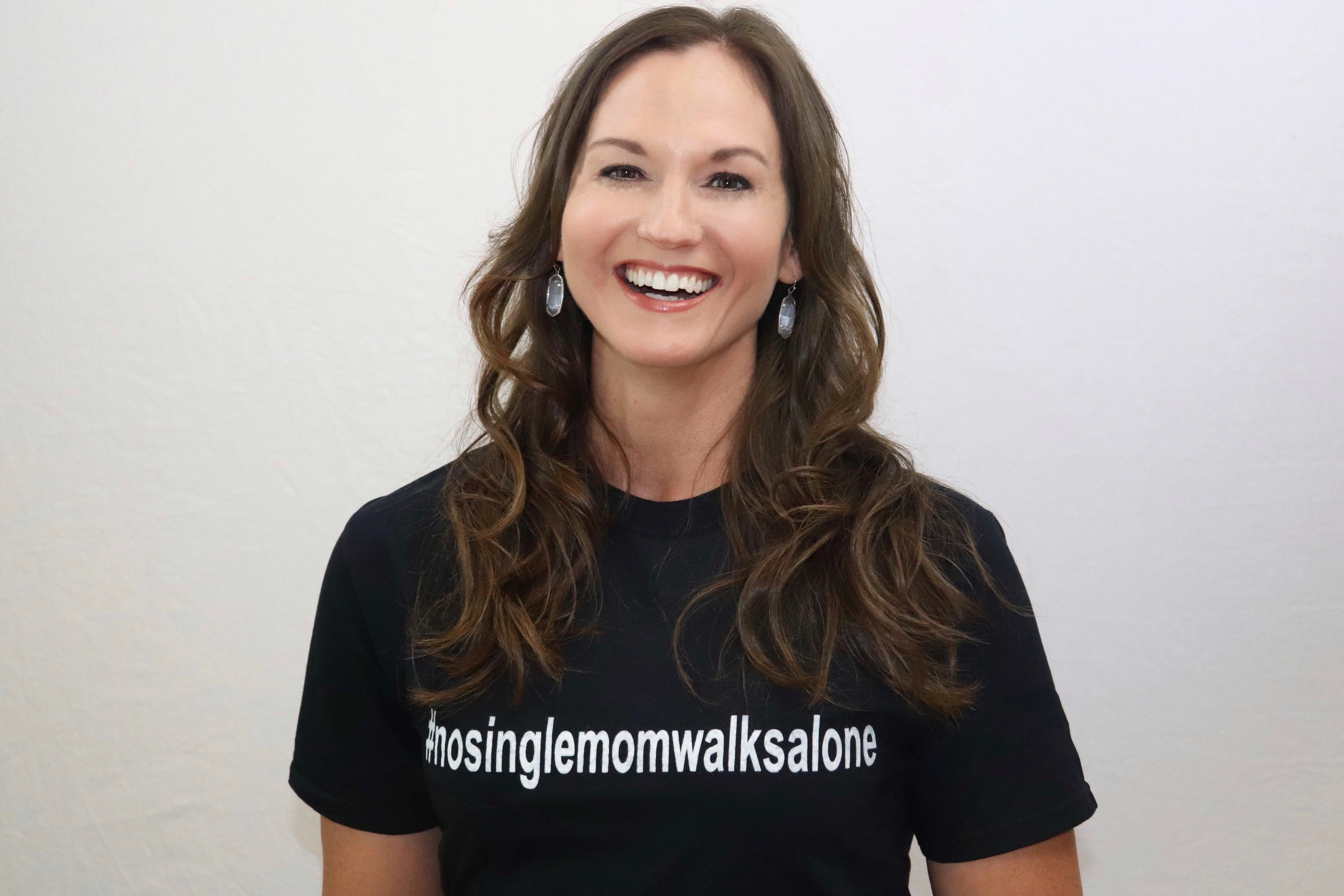Originally published Wednesday, 16 October 2019.
What To Do When Your Child’s Friend is Struggling by Jennifer Maggio

I was 14 years old when a dear friend’s father left her mother. She was devastated. The fighting had gone on for months. It had been tense at home, but she never imagined her parents would actually split. We stayed up and cried together many nights in those first weeks and months. We mourned the loss of the family that would never live in the same home again. We mourned what once was and what could now never be. I listened as she shared her pain and fears of what would eventually happen and how life would never be the same. Her pain became my pain. I just wanted to help her heal, and mostly, I just felt helpless.
My mother died when I was only 18 months old, so I knew the trauma of living without both parents all too well. I knew the financial challenges that would likely lie ahead for her family, the parties, or church events where it would hurt that both parents were not present, and the endless questions that would one day come from well-meaning friends asking where the “other” parent was. Through the years, God placed beautiful, loving adults in my life that helped me successfully navigate the hurt of losing a parent, the trauma of living with an alcoholic, and more. Those adults included relatives and family friends, teachers and coaches, and parents of some of my best friends. Their parents became my parents in so many ways. Even now, as I think of all of my friends’ parents and how they acted as “mom” in my life through critical parts of my story, I am moved to tears.
Nothing is worse than when, as adults, we see a child is struggling, especially if you are a parent. If an adult has some type of hurt, trauma, disappointment, or a devastating circumstance, of course, it’s bad, and we sympathize. (Hopefully, we move forward to lend a helping hand or a listening ear, too). But let’s face it. There’s just something special about a child – the beauty of what they could be, their innocence and sweet faces – that fills us with immense heartache when they are hurting. So what do you do when your child has a hurting friend? How much is too much? How little is not enough?
Just like when my friend was hurting, oh so many years ago, and the special parents of friends that were there for me through my own trauma, there are some real do’s and don’ts that will assist you in navigating this season with your child’s friends who may be experiencing the struggle of an absentee parent, death, poverty, a health issue, or more.
- Be there for your child first. As your child is there for his/her friend, you be there for your child. As you well know, it is an important life skill to learn to be a good friend to others, to learn to encourage others and to sympathize when our friends are struggling. This circumstance is a perfect opportunity for your child to gain skills that will last a lifetime. Open dialogue with your child about how they are feeling and what questions they may have, as well as ensure that if there is something serious or harmful happening, they know they can come to you. Be the support to your child, as he/she is the support of a friend. This will allow you to gently guide them through appropriate responses, while also letting them know that the things that concern them also concern you.
- Be a listening ear. Let your child know that you care. Encourage conversation when the friend is over. Ask questions to display concern, but also be hesitant to offer advice. There are multiple layers to a struggle, and depending on what the child is struggling with, there could be multiple sides to the story. As a trusted adult, your main focus should be on displaying love, care, and warmth to the child, and being a listening ear that can exhibit the love of Christ by simply being there.
- Don’t overstep your bounds. While it is important that you are supportive and that your child and his/her friend know that you are there for them, it is also important that you honor and respect their parents’ (or guardians) position in their lives. The struggles a child is facing could stem from challenges at home or circumstances that you do not fully understand or have comprehensive details on. It’s important that you recognize the authority figures in that child’s life (parents, grandparents, teachers, etc.) and respond with an attitude of honor and respect. Teach that child that it’s important to honor his/her authority. (Caution: If the struggle the child is facing stems from suspected abuse, then it’s important that you notify appropriate parties and investigate.)
- Don’t try to fix it. Life gets messy, and problems get complicated very quickly. It isn’t our job to fix everyone and everything (although as moms we certainly think so, don’t we?) I don’t know about you, but some of the most valuable lessons I’ve learned in life have been through struggle and disappointment. The same will likely be true for your child’s friend. There are some life lessons that often come best through experience, pain, and struggle. Struggles help us build resilience and full dependence on the Lord. We learn the value of perseverance. We grow in many areas. Be careful not to attempt the fixing. Point them to the One who can fix it all. (Now, that’s not to say that baking some warm chocolate chip cookies or serving a great meal won’t go a long way to help heal them!)
- Do point the child to Jesus. The deepest sorrows only our Healer can mend. The largest mountains, our Savior, can move. The tears shed are bottled up and stored (see Ps. 56:8). He cares more than we ever could. Continue to point the child in the direction of his/her Savior. This is a prime time to move forward in either strengthening his/her walk with the Lord or introducing him/her to our Savior. Certainly, we want to be age-appropriate with such discussions, but Jesus instructed us to come to him when we are weary. (See Matthew 11:28-30).
- Pray with and for the friend. Take the time to pray together as a team. Let the child know that their trust can be in the Lord and that He offers peace that the world does not understand. The more frequently we pray with and for our children (and their friends), the more embedded this becomes into their lives and personal walks with their Heavenly Father as they become teens and young adults. Take the time to lift up the needs to the Lord and trust that He will direct the paths. Exhibit how to pray. Show them that even the toughest of problems, for which you have no answers or solutions, can be taken to the Lord, and He can provide a peace that just flows like a river through the situation.
While the pain of a child is heartbreaking, it can be a time of great growth for all involved – you, your child, and the friend. While we cannot always understand the why, we can trust the Lord that He is always good and all-knowing and all-powerful to heal and rectify the pain.

Jennifer Maggio is an award-winning author and speaker, whose personal journey through homelessness, abuse, and multiple teen pregnancies is leaving audiences around the globe riveted. At 19, Maggio was pregnant for the fourth time, living in government housing on food stamps and welfare. She shares with great openness, her pain, mistakes, and journey to find hope in Christ. She ultimately became an 11-time Circle of Excellence winner in Corporate America. While a vocal advocate for abstinence, and sustaining today's marriages, Maggio recognizes that single parenthood exists and is passionate about seeing these parents thrive. She left her corporate successes behind to launch a global initiative to see single moms living a life of total freedom from financial failures, parenting woes, and emotional issues. Her passion is contagious, and her story has been used to inspire thousands around the globe. Today, Jennifer works to ensure that no single mom walks alone as the founder of the national profit, The Life of a Single Mom. For more information and resources, visit the website HERE.








